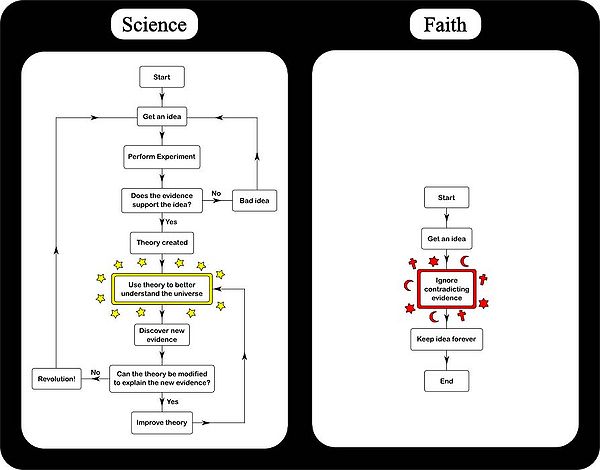Good point! I would say that I refuse to believe in God without something resembling proof (or concrete evidence), and that I incline towards disbelief in the absence of such (the same way one may be disinclined towards belief in, say, leprechauns). However, I do not, as an article of faith, assert categorically that God doesn't exist. Such an entity may well be. As with leprechauns, I would accept proof were it to become available. In the meantime...
Yes, I am familiar with the kind of person to whom you refer. I cannot speak for others, of course. I suspect that much of what you see is a manifestation of feelings of disgust and resentment towards the actions, general and specific, of the agents and followers of organized religion.
In my own case, what animosity I hold is exclusively for the politicization of faith. I view individual faith as nothing more than a curiosity, one of what are undoubtedly many disagreements of fact between myself and the other. It may be, however, that my animosity towards such organization comes across, in some cases, to some, as animosity towards individual faith itself, which it is not.
Fair enough. It's reasonable to admit that such a high standard is difficult to maintain with perfection. Not especiallly hypocritical if you accept the same from others, also.
I hope so. In my view, the absolute do-not-cross line of morality is dictated by the Principle of Non-aggression. I certainly hope that I have not aggressed in my adulthood. If I have done so, it is assuredly by mistake.
While I also consider it good karma to be good and charitable towards others, and to do as little harm as possible (where aggression is absent), I would punish no one, including myself, for failure in this regard. It is not mandatory, merely best practice. I hope my own failures are minor and irregular, but I suppose I do not consider them hypocrisy since I consider them allowable.
Oh, certainly not. I hope I didn't come across as suggesting otherwise!
Personally, as a member of the "faithless", I am inclined to credit such moral consistency to an internal drive found in a certain personality, regardless of faith or lack thereof, which is merely attributed to faith (or lack thereof) by those with a self-confirming interest in seeing it so.
This may be true. In my own case, I make no claims of asceticism, or guruhood, or anything of the sort. I would say that my ability to maintain internal consistency of morality is possible simple due to having a simple and clear standard, which is easy in compliance and inexcusable in failure.
I do not disagree.
I understand this perspective. In my view, humanity is evidently imperfect, incredible though we may be. It is therefore not unreasonable to credit it to the imperfect but continually-optimizing process of evolution.
That's not especially hypocritical.
I myself am an advocate of the teachings of Jesus (minus the hocus-pocus attributed to him by later admirers). I have a copy of the Jefferson Bible readily at hand. I simply find it to be a moral framework not requiring a belief in a deity, although that was a most convenient vehicle for dissemination of the framework the time and place of its inception.


